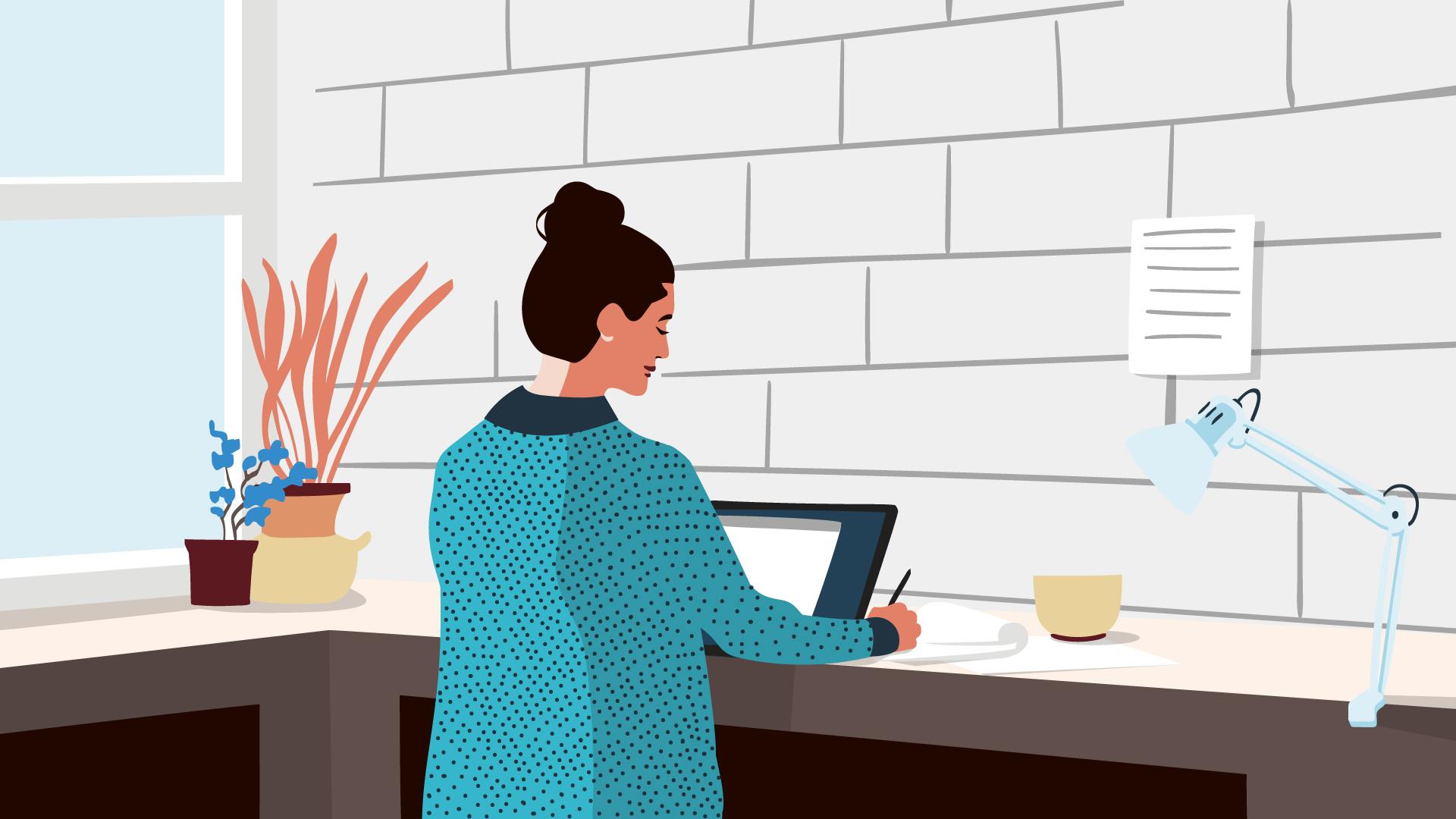Being a freelancer gives you a special kind of freedom no employer could ever offer, the freedom of being able to say “No” to a project and the ability to do it on your own terms. As a freelancer, you can work with multiple clients in a week, heck in a day if you want to. But nothing is perfect, and finding a freelancing gig can be tough. You’ve gone through the whole visa process, you’ve written the business and financial plan, you’ve proved to the public authorities that you will be able to work successfully in Germany and you’ve gotten the working permit. You’ve registered yourself and are now the proud holder of a tax number and a social security number! Bravo!
Now comes finding a new job. You’ve networked; you’ve sent out emails, you’ve done it all! And finally, you’ve managed to nail a freelancing gig in Berlin! Congratulations! The hard part is over! The cherry on top is that it’s a full-time job. So you’ll be busier and you’ll get paid a little bit more. Working for an agency full time has its perks, but there are a few things you need to know in order to make sure you are on the safe side of the law. Not to mention dodging iffy employers.
Can I get a contract?
Since most freelancers do not sign actual contracts with employers/ agencies, you can always ask for an official statement stating that you are employed with said agency for the duration of the project you will be working on. I have done this a few times and it is nice to keep on record to prove that you have worked with these agencies. You can also ask your employer at the end of your employment if they could write a second statement saying they would consider employing you in the future. For visa-related purposes, this can really come in handy, and most employers, if they are happy with your work, don’t have any problem writing that second statement.
On-site or home office?
Most agencies that employ full-time freelancers expect you to be present on-site for the duration of the employment. That means you get a working space, a company computer (most of the time), and you are treated as if you are a part of the team. The only difference between you and the rest of your colleagues is, really, your type of employment. They being full time angestellt/employed and you being a free agent Freiberufler . Some employers don’t have a problem if you work from home a couple of days a month, while with others it’s not even going to be an option. It depends on the agency; the sensitivity and secrecy of the project and of course the demands of the client.

Who pays for what?
As a freelancer in Germany, you pay your own health insurance and taxes, as well as your own pension. Agencies/clients only pay your gross fee and your 19 % VAT tax. That is why freelancers are more attractive for agencies when they need extra support on one of their projects. However, agencies are not allowed to employ a freelancer full time for more than six months . Most importantly, you are not allowed to earn more than five sixths of your total income from a single source. It’s a tricky business to do with something called “ Scheinselbstständigkeit ”. This post on Toytown Germany has intensive information on the subject which translates to pseudo/false freelancer . The risk here is basically the government assuming that you and your employer are avoiding employment liabilities.
Do your thing,
not your taxes
The risks of Scheinselbstständigkeit
An employer in Germany pays a percentage of taxes on their regular employees (full time and part time) as well as their health insurance and pension plan. If you have ever been employed, and registered, with a German employer, you would have received a “ Lohnsteuerbescheinigung ” On that, you would see how much is being deducted from your Gross salary by your employer (taxes, insurance, pension) in order for you to receive your Net salary at the end of the month. Now, as you know, freelancers pay everything, and your employer/client only pays a gross sum. So, in order to avoid any assumptions on cheating taxes and pension payments, agencies/employers usually tend to avoid hiring the same freelancer for more than the limited duration of 6 months.
This could be risky business for a freelancer, in case you get audited by the Deutsche Rentenversicherung German national pension system and you have been freelancing for a single client for let’s say three years, you could end up paying them 48 months worth of back payments (around 500 a month). However, like every law, there is a loophole! If you are being employed for more than 6 months, you and your employer have to fill out a seven-page document for the German national pension system, and you have to prove to them that you are working for more than one client. They might ask you to pay a contribution (ca. 500 euros a month) but it’s not set in stone. Your employer would be in more trouble than you would be , since they will be the ones seen as not coughing up employee benefits.
On the first day of your new job
On the first day of your new job as an agency freelancer, you will, most probably, be asked to sign two contracts An NDA (Non-disclosure agreement) An IT and Data Security contract These two contracts are standard legal documents that you will have to sign with any agency. Be it as a freelancer or as a regular employee.
You will also fill out a “ Personalfragebogen ” (Personnel Questionnaire). Here you will be filling out your personal information (Address and telephone number, date of birth and nationality) as well as your social security number, tax number and tax class. You will also be asked to fill out your previous employments and education. In addition to that, if you are working with another client/employer, you will have to state their name, and the company address as well. Any important piece of information about you and your professional life that can affect your current employment should be filled out in the Personalfragebogen.

Invoicing
The greatest part of getting a job done, other than your own internal satisfaction, of course, is getting paid to do the job. If this is your first time writing an invoice in Germany then this is what you need to know. With my experience, every agency/ employer asks for something different on the invoices you send them. Some want a breakdown of the tasks you’ve performed and for some, it’s enough to simply have the name of the project. There are some things that are a must on any invoice! Those are: Name and Address Bank details Bank Name and Account holder IBAN & BIC number Account and Bank number Bank account holder The name you have used to register your bank account Tax number International VAT number If you have one The agency’s name and address Invoice number Name of the project and total number of hours worked Price per hour 19% VAT tax
There are two things that I have had some agencies ask for and others tell me it was completely irrelevant for them to include: Social Security number This statement: Steuerschuldnerschaft des Leistungsempfängers VAT as charged due to the application reverse charge regulation (Art. 21 Abs. 6)
At the end of the day, invoicing your employer would be something you have to adapt to their needs and their accountants bookkeeping methods. The accountants there are your best friends and they want you to get paid, too. So, a little word of advice: Go, introduce yourself and show them a copy of your invoice before you have to give it in. They’ll let you know if something doesn’t work for them, and they’ll love you for it. You’ll be saving them some hassle in the future.
What to expect in terms of workload:
Some agencies tend to hire a freelancer to fill a role in a certain project. The great thing about working for an agency is, there is a huge possibility you could get hired for a certain job, but if you’re good at your job, you could be asked to take on more work from other projects in motion. At the end of the day you could end up working on three different projects, each with a small role, or you could end up working on a single project carrying a large load. It depends on your qualifications, your passion and your multitasking ability.
I say this from experience, the more varied you are in skills and abilities, and the more dedication you show in your work, the more trust the agency will have in you in return. Eventually, the more work they will give you. Not only will you gain experience on a variety of different projects, you will be gaining a long-term employer. When you are trying to fish through the job market in Germany, it’s a great thing to already have a long-term employer on your side, who you know will always give you a good supply of work to do on a regular basis.
If you’re reading this, then you’ve reached the end of this post and you now know all you need to know about freelancing full time. It’s a hassle, but if you’re well prepared before going in, then you’ll be on the same side. Happy freelancing!
Author: Nour Tawfik
Related articles
Freelancers - What Hourly Rate Should You Charge?
There are a lot of assumptions about Freelancers and self-employed people. Some are true - yes the freedom to make the schedule and ‘’choose’’ your clients is great. However, unlike a standard 9 to 5 job where your role is clear and defined, where the organisation you work for scales your salary and aligns it closely with specific experience and also - provides a pathway to earn more, freelancers are left to structure their income themselves as well. The assumption is - this is great, you can really charge what you are worth! However, clients tend to assume freelancers have a ‘’discounted rate’’ or that their direct rate entitles them to harsh negotiations. Quite simply, this is not the case. For freelancers, in this case, it is very important to know how much you should charge, and why - so you can negotiate your worth. In this article, we are going to take a look at what hourly rate you should be charging.
Kate Bailey
Freelance Editor
